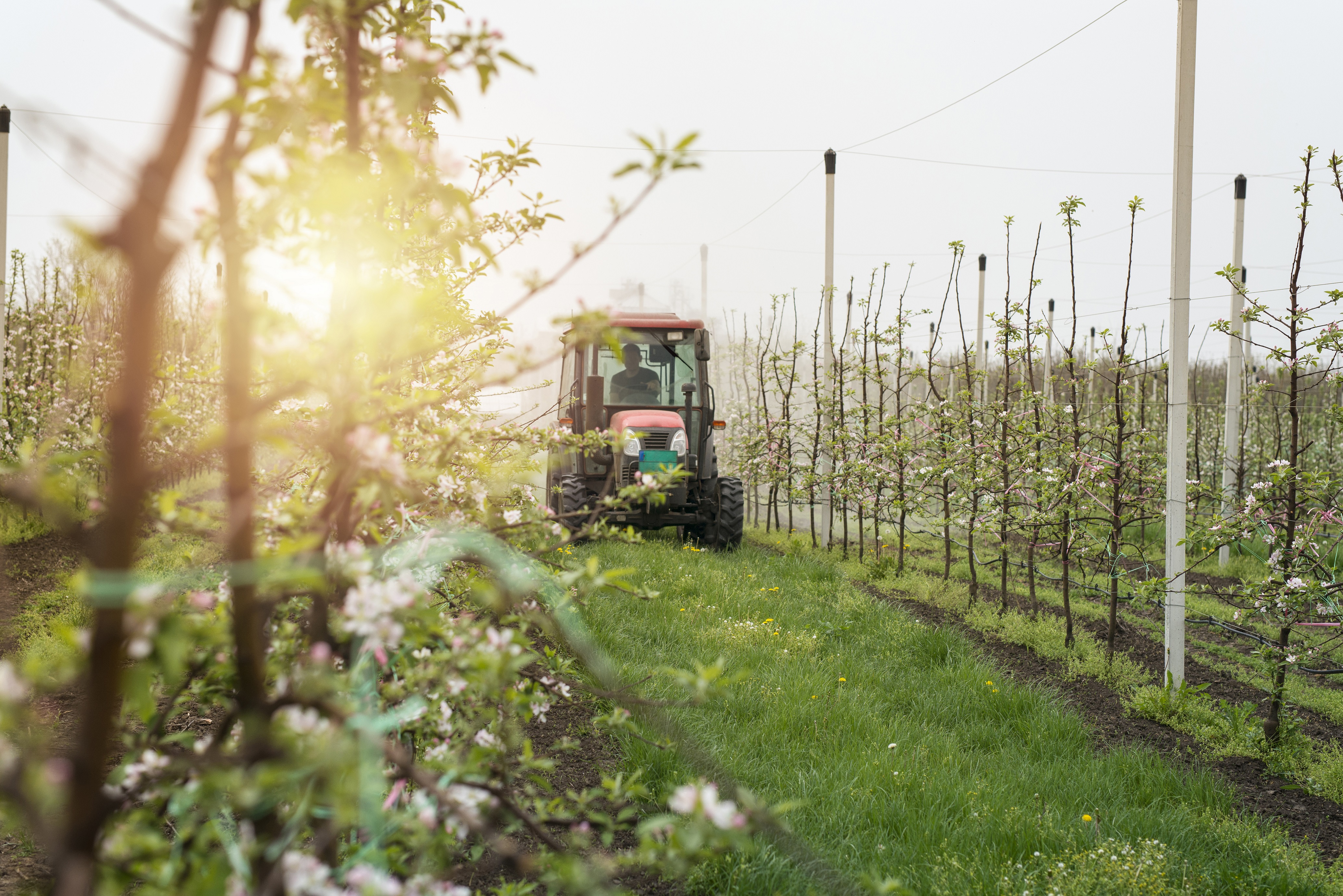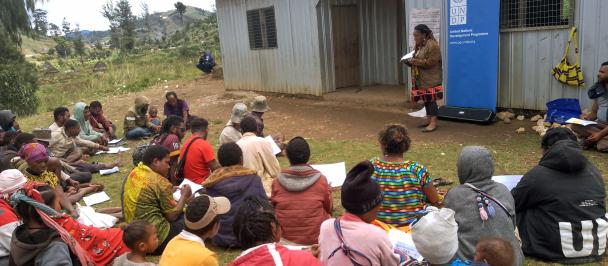Your guide to investing sustainably in the value chain
Unlocking sustainable investments in food systems
October 16, 2023

The complex global food systems landscape holds tremendous opportunity for sustainable investment.
The global food system presents a huge business and investment opportunity with an estimated asset value of US$14 trillion, equivalent to between 16 percent to 20 percent of global GDP. Unfortunately, it is also causing negative impacts on people and planet. The vast majority of the hundreds of billions of dollars invested annually in food systems is misaligned and driving negative outcomes, generating $12 trillion in hidden social, economic, and environmental costs. A staggering $1.8 trillion is allocated to environmentally harmful subsidies, with food systems receiving only 3 percent of total public climate finance. Coupled with the reality that over half of the world’s total GDP ($44 trillion) is moderately or highly dependent on nature, it is imperative we align public and private investments with scientific priorities and guardrails for healthy, sustainable food systems.
The current model of food production and consumption is driving widespread environmental degradation, climate impacts, and diet-related diseases. The global food system accounts for approximately one third of anthropogenic emissions, while 60 percent of deforestation is attributed to agricultural commodity production and land use change. Global support to agricultural producers could reach nearly $1.8 trillion in 2030 - but this support is heavily skewed towards measures that are distorting, unequally distributed and harmful to the environment and human health, according to the Food and Agriculture Organization. Therefore, transforming food systems is critical to achieve global targets including the Sustainable Development Goals (SDGs), objectives of the Paris Agreement, and the Kunming-Montreal Global Biodiversity Framework.
Shifting the way we produce, process, transport, package, and consume food to align with these development, climate and nature targets requires an annual investment of $350 billion by 2030. These funds will drive sustainable agriculture and land use change, innovation in food value chains, shifts in consumer behaviour, and help overcome institutional and financial barriers. Investors hold significant power in driving positive change through their influence on clients and suppliers, with the potential to demand and support the fundamental shifts required along the food value chain, with better management of negative and positive impacts, thereby directing resources toward sustainable food systems.
Developing authoritative investment guidance for sustainable food systems
Amidst the complex landscape of the food system exists a tremendous opportunity for sustainable investment. SDG Impact, part of UNDP Sustainable Finance Hub, and the Good Food Finance Network (GFFN) are working together to develop a Good Food Investing Framework, starting with a targeted guide for investments in the food system - the ‘Practitioner's Guide for Investing in Sustainable Food Systems Transformation’ (‘The Guide’). The Guide will enable financial institutions and enterprises to put in practice the SDG Impact Standards and evaluate opportunities for investment that enhance long-term profitability and mitigate risks, while optimizing impacts on nutrition, environmental sustainability, climate resilience, and social equity.
The Good Food Investing Framework is based on the SDG Impact Standards - global management practice standards that fill the gap between high-level principles of human rights, sustainability, and responsible business on one side, and performance on the other. By focusing on internal management practices - that is, on how investors and businesses set their organization’s strategy, their management approach, disclosures and governance practices - the SDG Impact Standards shine a light on how business and investment is done. Helping investors and enterprises incorporate sustainability at the heart of their ‘business as usual’ will have a transformative effect on impact performance - and reduce risks of green-washing. By adopting sustainable management practices, organizations maximize their likelihood of contributing authentically and meaningfully to sustainable food systems. Focusing on management practices makes it easier to effectively and efficiently meet impact performance benchmarks and comply with emergent sustainability regulations and taxonomies.
Frameworks like SDG Impact Standards have already empowered investors and businesses to embrace sustainability as a strategy for growth that honours the UN Sustainable Development Goals. Sector-specific guidance offers a tailored route to achieve progress by translating scientific knowledge into actionable strategies for the food industry. The key is to create positive intended outcomes, while also lessening the negative impacts on people and planet in the process. The Guide will be developed in line with the UNDP SDG Impact Standards for Enterprise and the latest available science from the IPCC, IPBES, the first EAT-Lancet Commission and the ongoing second EAT-Lancet Commission, and other authoritative sources. As investors road-test the guidelines through real-world application on current or prospective deals, the insights gained will play a pivotal role in shaping the final guidance. The Guide will be a product of collaborative expertise from leaders in food systems science, policy, and finance.
The Guide: A tool for positive change
Once complete, the Guide will be available to investors and investees including members of the Good Food Finance Facility (the “Facility”) which is being developed by the GFFN with the EAT in the lead. The Facility will shift and provide expanded access to finance, primarily through facilitated co-investments, enabled by bridging funds, development of tools and policies (instrumentation), and mutual accountability systems. By clearly signalling scientific priorities and guardrails, it will make it easier for investors to direct capital in ways that drive transformation towards healthy, sustainable and just food systems for all. The Guide can help investors and their investees integrate the SDGs into their strategy, management approach, operations, disclosures, governance system, and culture. By doing so, they are more likely to create resilient business models that not only take care of people and planet but also the company’s bottom line. More specifically, SDG Impact Standards and the food sector specific guide will:
- Guide investment decision-making
- Promote coherence and impact across portfolios
- Support investors in benchmarking progress through self-assessments
- Shift finance norms over time
- Promote knowledge exchange and understanding of goals and guardrails (1.5°C + imperatives)
- Coordinate action toward sustainable food systems.
We have already begun to see demand and success from the early adoption of the SDG Impact Standards from both the investor and investee side. In Europe, the SDG Impact Standards have become the most widely used impact management framework among private equity managers according to the European Venture Partners Investor Survey. From an investee’s perspective, in Colombia, UNDP ran an enterprise competition to find a pool of investment-ready enterprises based on its SDG Investor Map, a market intelligence tool that identifies scalable business opportunities aligned with national SDG priorities and backed by government policy. Nominated enterprises were assessed by a multi-sectoral panel of experts. The seven finalists received business and impact mentoring, including training on the SDG Impact Standards. They also had the chance to pitch their business plans to investors. Paramo Snacks, a finalist working to replace snack foods of low nutritional value with nutritious alternatives that support livelihoods amongst fragile communities and preserve ecosystems has since received investment from Bancolombia.
Supporting and accelerating mindset shifts
When guidance is collectively embraced, they can foster a shared understanding of goals and responsibilities. As norms and mindsets shift, these tools can help coordinate broader movements of finance towards sustainable food systems - and finance has a distinct and influential role in catalysing transformative shifts.
Fundamentally, we need to align financial flows with science-based thinking, global climate and nature targets and the best available scientific guidance on healthy nutrition to enable the urgent transformation required. Developing tools, such as the Guide, to facilitate investment is an important step in achieving economic, environmental and societal resilience. With commitment to evidence-based priorities and willingness to learn together, financial institutions can lead the way in catalyzing the change so desperately needed. The Good Food Investing Framework encourages investor and investees in the food and agriculture sector to join the global consultation by completing this online form.
Get started on the SDG Impact Standards with free resources:
- SDG Impact Standards
- SDG Impact Standards Self Assessment Tool to gauge sustainability journeys
Impact Measurement and Management for the SDGs co-created by UNDP and CASE at Duke University
About the GFFN, EAT and UNDP SDG Impact
The Good Food Finance Network (GFFN) is a coalition of organizations that aims to catalyse capital and create an enabling financial environment for the transition to sustainable and equitable food systems. By bringing together leaders in the financial sector and recognizing the role of supporting actors in the food systems value chain, GFFN addresses system inefficiencies and facilitates essential communication, collaboration, and technical expertise needed to increase the amount and quality of investments and commitments towards science-based, data driven solutions for a measurably better food system.
EAT is a non-profit global thought leader dedicated to transforming our food systems through sound science, impatient disruption and novel partnerships. EAT brings together the world’s most reputable scientists and academic institutions to generate scientific insights to define the future of food production and consumption worldwide and guide the transition to a healthy, sustainable, and fair food system for everyone. Major assessments instigated and supported by EAT include EAT-Lancet Report, the Blue Food Assessment, and the forthcoming report by the Food System Economics Commission.
SDG Impact is a flagship initiative of UNDP Sustainable Finance Hub established to support the private sector to direct capital and activities towards the achievement of the SDGs. SDG Impact is making it easier for businesses and investors to realize their sustainability and SDG intentions and commitments in a holistic, credible, and accountable way. UNDP SDG Impact is a supporting partner of the GFFN.

 Locations
Locations





